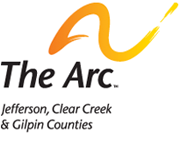Employment Choices
Please note the page/ website you’re currently using has replaced Jeffcotag.org as of August 14, 2020.
Maybe some of you are out there thinking, “OK some kids … but mine?” Yes, with the right support your son or daughter can find satisfying work and maintain their governmental benefits.
Many parents feel that communication and behavior challenges, as well as health concerns, create too many barriers. Others look at transportation issues, supervision needs, and long waiting lists as deterrents to employment.
The fear of losing Social Security benefits can stop some parents from even exploring paid work options.
In this session you will learn about:
- Pre-vocational setting: where the youth have hands-on learning experiences
- Supported Employment: which brings in a job coach who provides on-site training
- Customized Employment: where employers match their needs with the strengths and interests of their employees with disabilities.
Let’s explore these together.
Most of us remember our first job. During our first few days we may have struggled but eventually we made friends, became comfortable with our skills, and even started to enjoy ourselves.
Employment can help people learn about themselves. When our days take on meaning, when we gain self-confidence and even take home a small income, we experience success. One of the most effective predictors of success is making a job match that maximizes skill and minimizes barriers.
Try looking at work in its widest terms. If a young adult is still in school, he or she can use the Individual Education Program goals to gain work experience. Volunteer and internship experiences allow them to test different work environments. Some employers even offer job shadowing or unpaid “try-out” work.
We use several terms in our system to describe job search, development and retention strategies:
- Competitive Employment - This unique approach to work is recognized by the Department of Labor as a way to help people with disabilities obtain and keep jobs. Employers match their needs with the strengths and interests of employees with disabilities. It also encourages employers to create working conditions that best meet individual employee needs.
- Supported Employment - This option brings in a job coach who provides on-site training. The coach creates a bridge between the employer and employee to practice skills and offer clear communications both ways.
- Pre-Vocational Setting- This is a vocational training workshop where participants learn about the job and receive hands-on training. Here, everyone learning these skills have disabilities and they receive some income for the work they do.
As parents, we can help our young adults make their journey into the workforce. The best matches and the greatest successes come when young adults recognize what they like and what they want to do. Throughout the process, understanding the supports that these young adults require can make the process easier for everyone. On our website you will find questionnaires and interest inventories that can help you begin the search.
Take a team approach. Use the resources in your community. The Department of Vocational Rehabilitation has a program for transition-aged students with disabilities called “School to Work Alliance program.” Also, visit the Employment Resources page on our website to find information about additional services.
Presentations and Handouts:
Local Resources:
-
Golden Office: 303-866-4121
-
303-982-2155
Return to Main Page
This content was created by the Jeffco Transition Alliance Group (or TAG). TAG was a collaboration among The Arc – Jefferson, Clear Creek & Gilpin Counties, the Developmental Disabilities Resource Center (DDRC) and Jeffco Public Schools. In partnership and with grant funding from DDRC, a series of family-focused trainings were delivered in past school years to equip students and their families in navigating a successful transition in their Life After High School. Due to family and community feedback the information was converted to self-guided learning.
 English
English Spanish
Spanish Chinese (Simplified)
Chinese (Simplified) Japanese
Japanese Korean
Korean Russian
Russian
